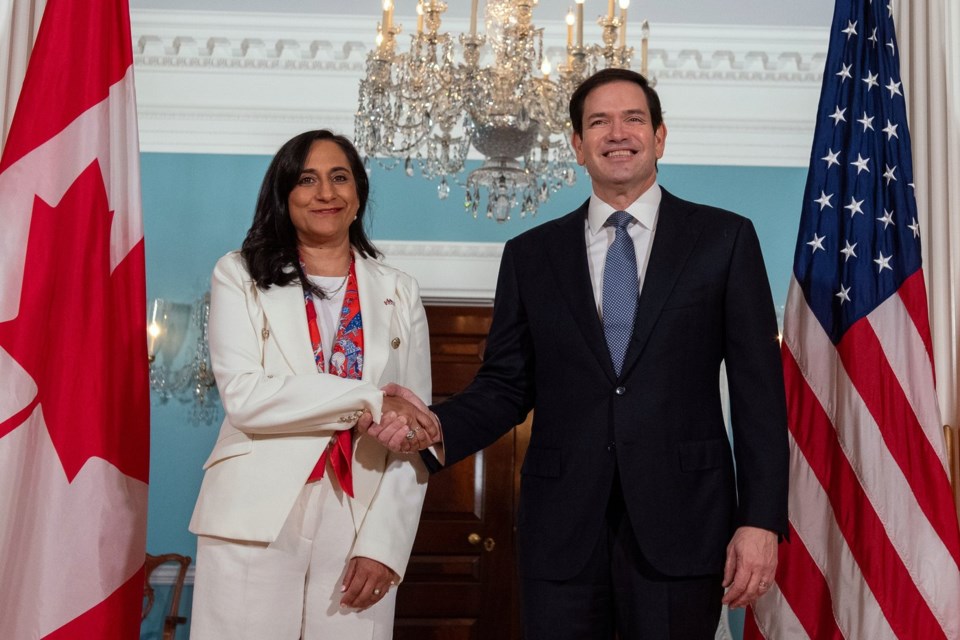WASHINGTON — Foreign Affairs Minister Anita Anand had her first official meeting with U.S. Secretary of State Marco Rubio in Washington on Thursday amid ongoing tensions in the bilateral relationship.
Anand and Rubio shook hands in front of Canadian and American flags in a room of the U.S. State Department. Neither responded to questions from reporters.
The State Department said Anand and Rubio discussed efforts to support Haiti's security, peace negotiations to end the Russia-Ukraine war and ways to strengthen the western hemisphere's response to China.
The State Department said they also talked about "Hamas's ongoing obstruction of peace in Gaza."
U.S. President Donald Trump last month criticized Prime Minister Mark Carney's move to recognize a Palestinian state.
The State Department under Rubio has taken significant action to quell criticism of Israel's actions such as revoking visas for foreign students who voiced support for Palestine and sanctioning officials with the International Criminal Court, including a Canadian judge.
Anand on Thursday also joined foreign ministers from Australia, Belgium, Denmark, Estonia, Finland, France, Iceland, Ireland, Italy, Japan, Latvia, Lithuania, Luxembourg, the Netherlands, Norway, Portugal, Slovenia, Spain, Sweden, and the United Kingdom in condemning Israel for giving final approval to a controversial settlement project in the occupied West Bank.
A joint letter from the foreign ministers said it will "make a two-state solution impossible."
"We condemn this decision and call for its immediate reversal in the strongest terms," the letter said.
Anand and Rubio have previously spoken by phone, including in June ahead of the G7 Leaders' Summit in Kananaskis. They also had a call in August.
Canada-U.S. Trade Minister Dominic LeBlanc cycled through Washington in July looking for a tariff off-ramp but instead Trump boosted duties on Canada to 35 per cent.
Those tariffs do not apply to goods compliant with the Canada-U.S.-Mexico Agreement on trade.
A fact sheet from the White House said the duties increased because Canada "failed to cooperate in curbing the ongoing flood of fentanyl" and also pointed to Ottawa's implementation of retaliatory tariffs.
U.S. government data shows a miniscule amount of fentanyl is seized at the northern border.
Canada is also being hammered by tariffs on steel, aluminum, copper and automobiles.
Since the tariff increase, there has appeared to be less of a push from Canadian ministers on the ground in Washington.
Carney has said he'll only make an agreement that is good for Canada.
Carney said earlier this month that "we're increasingly focused on building our strength at home and finding new opportunities for Canadian companies and workers abroad."
This report by The Canadian Press was first published Aug. 21, 2025.
Kelly Geraldine Malone, The Canadian Press



